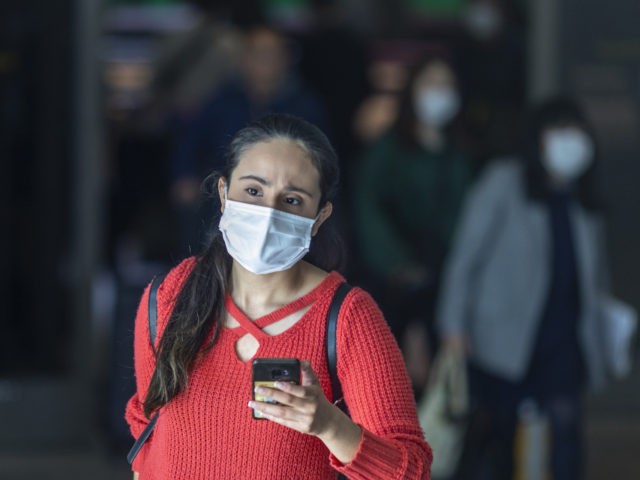The commonly worn cloth and surgical masks are roughly 10 percent efficient at blocking exhaled aerosols, a University of Waterloo study found.
The study, examining the effects of masks and ventilation, ultimately found that commonly used cloth and surgical masks do little to filter exhaled aerosols.
“The results show that a standard surgical and three-ply cloth masks, which see current widespread use, filter at apparent efficiencies of only 12.4% and 9.8%, respectively,” the study concluded, noting that KN95 and N95 masks were far more effective at filtering out aerosols.
“Apparent efficiencies of 46.3% and 60.2% are found for KN95 and R95 masks, respectively, which are still notably lower than the verified 95% rated ideal efficiencies,” researchers continued in the data published last month prior to the Centers for Disease Control and Prevention (CDC) reversing course, advising fully vaccinated individuals to wear masks if they are in high-risk areas.
The study’s conclusion continued:
Furthermore, the efficiencies of a loose-fitting KN95 and a KN95 mask equipped with a one-way valve were evaluated, showing that a one-way valve reduces the mask’s apparent efficiency by more than half (down to 20.3%), while a loose-fitting KN95 provides a negligible apparent filtration efficiency (3.4%). The present results provide an important practical contrast to many other previous experimental and numerical investigations, which do not consider the effect of mask fit when locally evaluating mask efficiency or incorporating mask usage in a numerical model. Nevertheless, if worn correctly, high-efficiency masks still offer significantly improved filtration efficiencies (apparent and ideal) over the more commonly used surgical and cloth masks, and hence are the recommended choice in mitigating the transmission risks of COVID-19.
Serhiy Yarusevych, one of the study’s authors, said there is “no question it is beneficial to wear any face covering, both for protection in close proximity and at a distance in a room,” but Yarusevych acknowledged there is “a very serious difference in the effectiveness of different masks when it comes to controlling aerosols.”
The study coincides with the reemergence of mask mandates across the country. Washington State, for example, reinstated its statewide mask mandate Monday, months after relieving vaccinated individuals from the previous rule.
Democrat Gov. Jay Inslee’s proclamation specifically prohibits businesses from “allowing customers to enter or remain in an indoor space in a business unless the customer is wearing a face covering.”

COMMENTS
Please let us know if you're having issues with commenting.